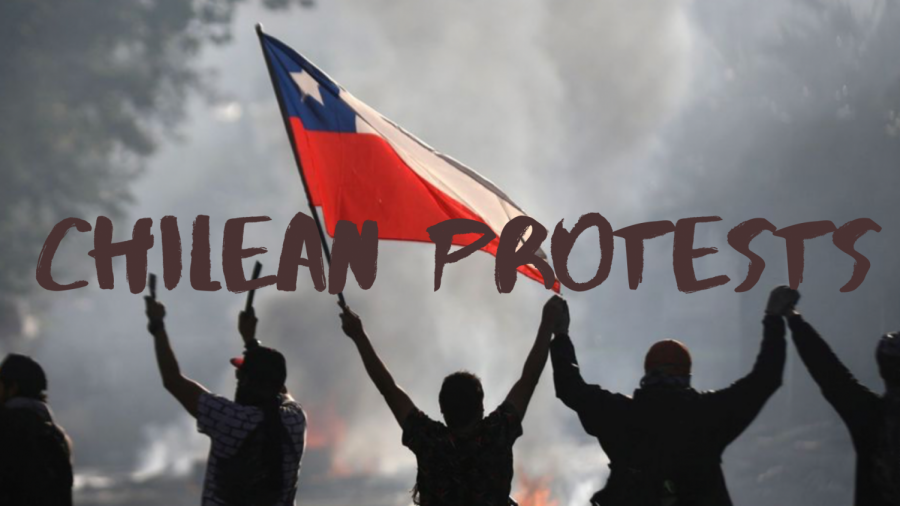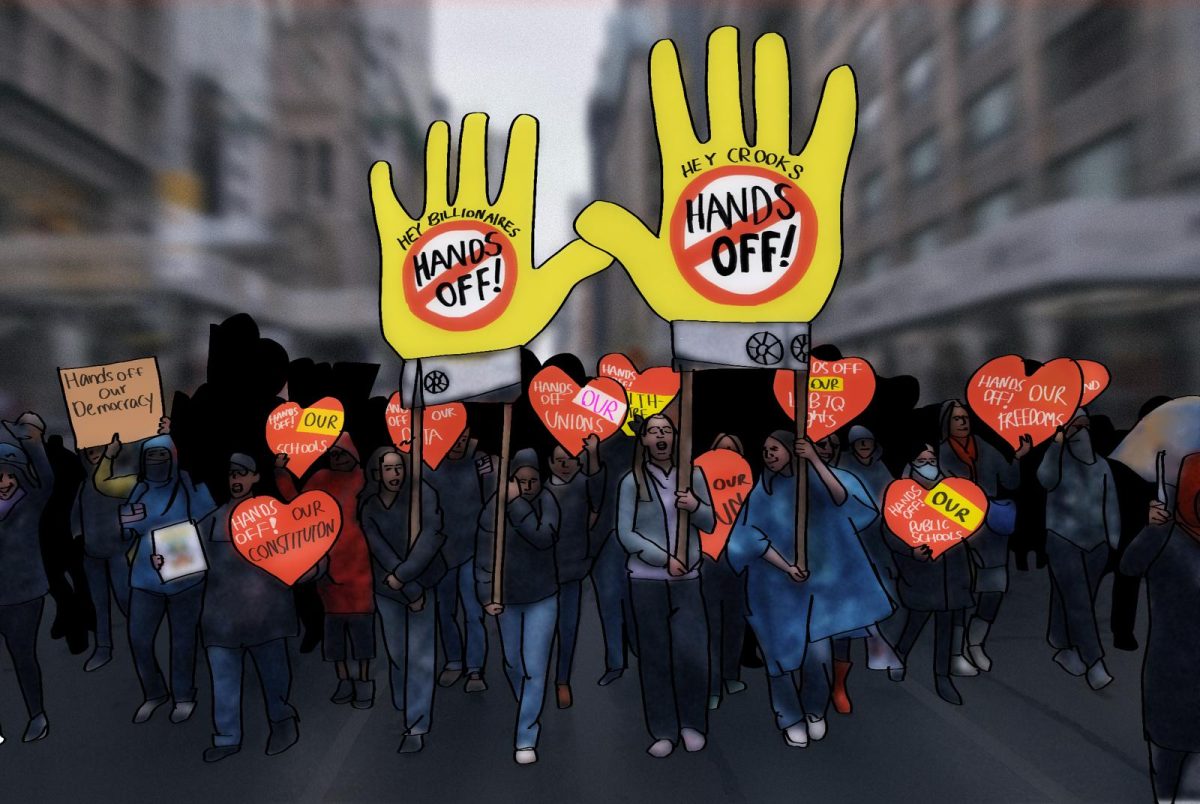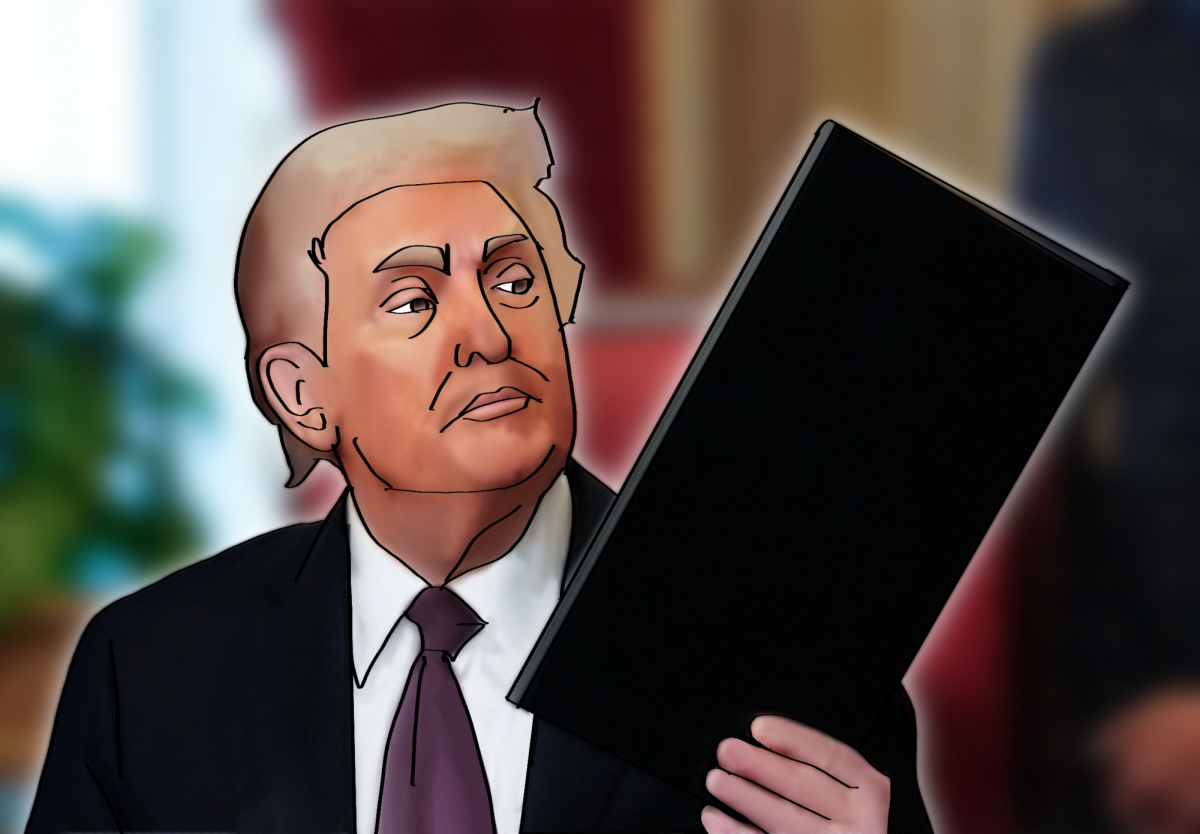Violence Erupts in Chilean Protests
A group of Chilean Protesters in front of a fire
Oct 20, 2019
Chile’s president Sebastian Pinera declared the nation’s first state of emergency since the 2010 earthquake on Oct. 19, 2019, when protests in the Chilean capital of Santiago grew into a nationwide protest coming from the bourgeoisie. These ongoing gatherings are protesting a span of thirty years that experienced economic inequality. These protests slowly became violent, leading to damages, injuries and even deaths.
The protests began when high school students took to the streets after metro prices were increased by 30 pesos (four cents in U.S dollars). It originated in Santiago, the capital of Chile. The high-schoolers protested the metro by evading the fees. They would jump over the charging stations, or break them completely. As police began to crack down on these acts, more protesters joined in.
“I think these protests are good for Chile. They may be violent now, but in the future, Chile will be a better and more equal place,” freshman Melina Telleria said.
These protests developed into a widespread protest of the classism that exists in Chile. People protested about low salaries, poor public health systems and low pensions. The acting Chilean president, Sebastian Pinera, declared a national state of emergency on Oct. 20. The major protest cities like Santiago went under martial law, or direct military control.
“Martial law basically allows the military to do whatever it wants, it becomes a pseudo-military-dictatorship,” freshman Nathaniel Leiva said.
The military used rubber bullets and high-powered water hoses to attempt to break up the protests, but the protests only grew in magnitude and severity, becoming increasingly violent. The death toll has now reached over eighteen. Protesters broke and burned public transport as well as breaking glass on buildings.
In the same speech that Pinera declared a state of emergency, he said: “We are at war against a powerful enemy, who is willing to use violence without any limits.”
This angered many protesters, who carried signs saying, “we are not at war, we are united.”
After many of the protests, on Oct. 22, Pinera announced a group of reforms in an attempt to end the unrest, which continued to rage even after the dissolution of the violent protests. Many have called for the resignation of Pinera.
A peaceful protest was held on Oct.25 in Santiago. More than a million people, about five percent of Chile’s population, were in attendance at this event. Pinera reacted by structurally changing the government a day later. He asked for the resignations of his entire cabinet. There are more protests planned, however. These protests, though, are planned to be nonviolent.
“Nobody is afraid now, not the people, not the government. We are walking toward the solution,” said Chilean resident Herman Sotomayor.











